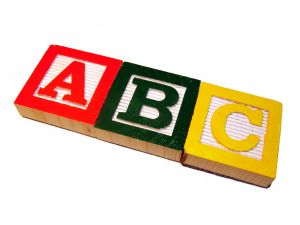
Note: I began drafting this post nearly 2 years ago and have covered parts of it in other posts in the interim, but I did want to post this now, as I think it addresses a common pitfall and might be of use – especially to the new/junior analyst.
Requirements elicitation is an art
It may sound strange to hear elicitation called an art, but if you’ve ever watched a solid business analyst efficiently identify and document business need by using a careful mix of questions – each designed to elicit a certain type of response, you know that it is much like watching the work of any other type of artist. There is an efficiency and a purpose to what he/she does, and the outcome is clear, concise, and intended.
Or, there’s the “easy” way
Of course, approaching elicitation as an art is doing things the hard way. There is a much quicker, easier, more common, and – unfortunately – much less effective way of eliciting requirements. It is the “so, what do you want?” – or “waiter” approach as I sometimes refer to it.
I know in my early experience as a BA I had a tendency to act more or less as a waiter or even more of a drive-thru attendant taking orders from the user or stakeholder (“yes sir, and would you like fries with that?”) and carrying them back to the IT kitchen. Obviously, there is very little analysis taking place when the BA is a virtual pass-through. In my defense, I didn’t know any better. I was doing what I thought I was supposed to, and what I thought I saw other analysts do.
In any case, how much better for all involved to have someone who was there to provide the additional value that comes by carefully posing questions that lead to an understanding of the customer environment, by making recommendations, and by politely challenging ideas when appropriate?
Preparation is a Differentiator
Prepare Questions
There are others, but one great way to be the artist and not the order-taker is to give some serious thought to the types of questions you might ask before the interviews take place I’ve touched on that in a couple other articles you might like to take a look at.
Research the Subject
Another form of prep work typical of the artist is that of studying the subject before making the first brush stroke. In the analyst’s case, this typically entails looking up all of the existing documentation on the topic available both in-house, and out. I like to scan company discussion forums and document repositories. I like to take to Google to research products conceived to solve problems similar to the ones we’ll be trying to solve with our project. I like to search for industry reports and whitepapers that might provide hints as to challenges and potential questions I might need to ask during elicitation interviews. In short, I like to do as much as I can to inform myself on the topic we’ll be discussing. Just as context is helpful to those who use an analyst’s documents, it is helpful to the analyst in framing both questions and responses during customer interviews.
So, there’s a quick-and-dirty breakdown of some of the primary prep activities I like to perform to prepare for elicitation sessions with users and stakeholders. The problem is, it’s so easy to skip or skimp on that type of prep work. I’ve been guilty of convincing myself that I already have 1001 other things I need to do, and that I already have a general idea of what I want to accomplish, so why pain over the details? I’ll just show up, and we’ll see where it goes from there.
Well, in my observation one important difference between the marginal and the strong BA seems to be the level of skill (competence and poise) in a meeting/interview setting. I’ve found that my confidence and competence in an interview scenario is tightly linked to my level of preparedness. I think you’ll find that it’s true that there’s not much that can throw an analyst out of his/her comfort zone quicker than not coming properly prepared.
So here’s what I’d like to hear from you –
- What are some of your ways of preparing for your elicitation interviews?
- Have you been guilty of “just taking orders”, or is it something you’ve ever witnessed?
- Do you think I am overemphasizing something that just comes as “second nature” after a few years’ experience?
- How would you train a junior analyst to put in the preparatory work in lieu of taking shortcuts? Or, train them to know that there is more to elicitation than just “showing up”?
As always, It’ll be great to get your thoughts on the matter.




Trackbacks/Pingbacks